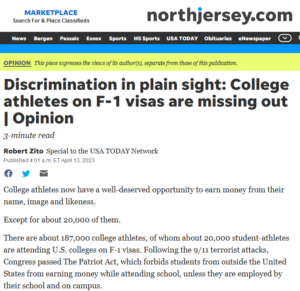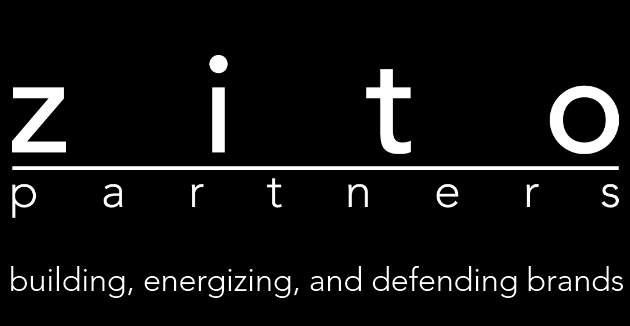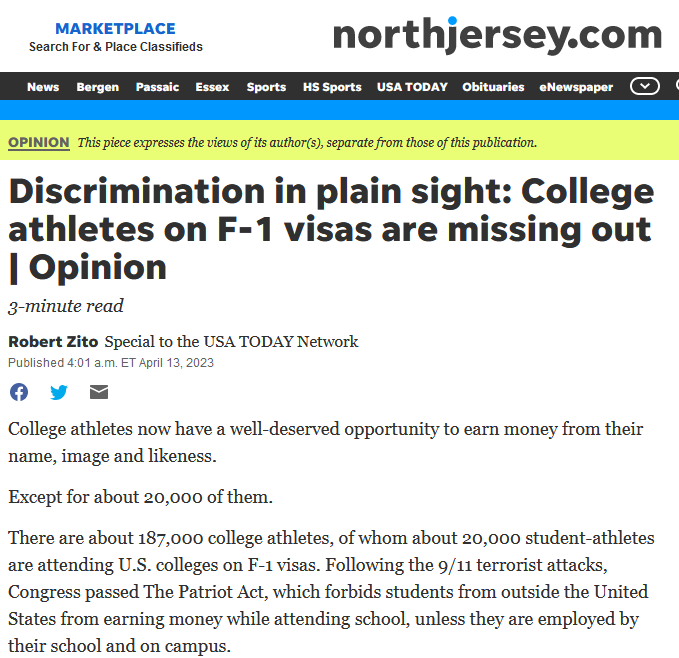 Discrimination in plain sight: College athletes on F-1 visas are missing out | Opinion
Discrimination in plain sight: College athletes on F-1 visas are missing out | Opinion
College athletes now have a well-deserved opportunity to earn money from their name, image and likeness.
Except for about 20,000 of them.
There are about 187,000 college athletes, of whom about 20,000 student-athletes are attending U.S. colleges on F-1 visas. Following the 9/11 terrorist attacks, Congress passed The Patriot Act, which forbids students from outside the United States from earning money while attending school, unless they are employed by their school and on campus.
You’re not going to get any arguments from me about strengthening national security. I was in the South Tower on 9/11, having coffee with a friend before the first plane hit the North Tower. By the time both planes hit, I was just three blocks away at the New York Stock Exchange.
It turned out that one of the hijackers, who lived in Paterson, New Jersey, was earning money while here on an F-1 Visa. He evidently didn’t attend classes; he just worked and earned money to help fund the attack.
Fast forward to 2021, and the NCAA decides it’s time to allow athletes to capitalize on their name, image and likeness. Except for those 20,000 students who aren’t allowed to earn a dime here in the U.S.
”While I understand the intent of the law surrounding F-1 visas, the application of that law, as written, to F-1 visa foreign born athletes creates a discriminatory environment where these athletes are precluded from receiving the same benefits under NIL as non F-1 visa athletes,” says Jose Linares, the former chief judge of the United States District Court for the District of New Jersey. “This unintended result discriminates against these athletes (who are often the most financially challenged and thus most needy of the financial benefits of NIL) in a way that was never intended, foreseen or justified. This unintended consequence needs to be remedied.”
Loopholes? A non-U.S. athlete can go “offshore” to take photos, post on social media, sign autographs and appear in television, print and social media advertising and keep his or her earnings. The result is that more and more colleges are scheduling preseason trips to Europe, the Caribbean Islands, and other locales to give their non-U.S. athletes the opportunity to earn NIL money.
“There is no reason for this,” says attorney Peter Till. “The athletes should at the least be allowed to have someone put the money in a trust so that when their Visa status changes, or they return to their home countries, they can benefit from the earnings. There has been considerable and scholarly discussion on this topic.”
The NCAA has more to consider regarding rules around NIL. Are schools offering athletes “confirmed” NIL compensation if they attend that school? Are college boosters (now legally) sending money directly to athletes, in exchange for an appearance at the booster’s company or for a social media post about the booster’s business? It’s a work in progress … and the NCAA will need to develop hard and fast rules, so schools better understand what is and isn’t permissible.
But the NCAA might start with leveling the playing field for all its athletes. Start with the low hanging fruit? It shouldn’t take much for an NCAA delegation to visit Capitol Hill and show why this law needs to be updated.
“This application of this law is outdated and misdirected,” says attorney Charles M. Lizza of the law firm Saul Ewing LLP. “We understand and abide by laws, but as times and practices change, laws need to be consistent with those changes. Students should all have equal rights.”
While not being able to earn money for themselves, some non-U.S. students have used NIL to help others thanks to the NCAA’s rule changes.
Take Clifford Omoruyi for example. The starting center for the Rutgers basketball team, who hails from Nigeria and is attending the school while on an F-1 Visa, “Big Cliff” has helped several companies with appearances and social media posts, but never asked for a penny. Instead, his marketing agent asked the companies to give a donation to the “Books & Basketball” program at the Salvation Army’s West Side facility in Newark. Clifford volunteered at the program during his off-seasons, while he lived with the family of the program’s founder, Muhammad Oliver.
“He’s been an amazing role model for so many young children in Newark,” says Oliver. “And the contributions companies have made in his honor, have helped us provide equipment for these children that they otherwise wouldn’t have.”
The NCAA has a long way to go to take the wrinkles out of NIL. But it — and Congress — can start by making it a level playing field for every athlete, regardless of his or her country of origin. The discrimination needs to end.

